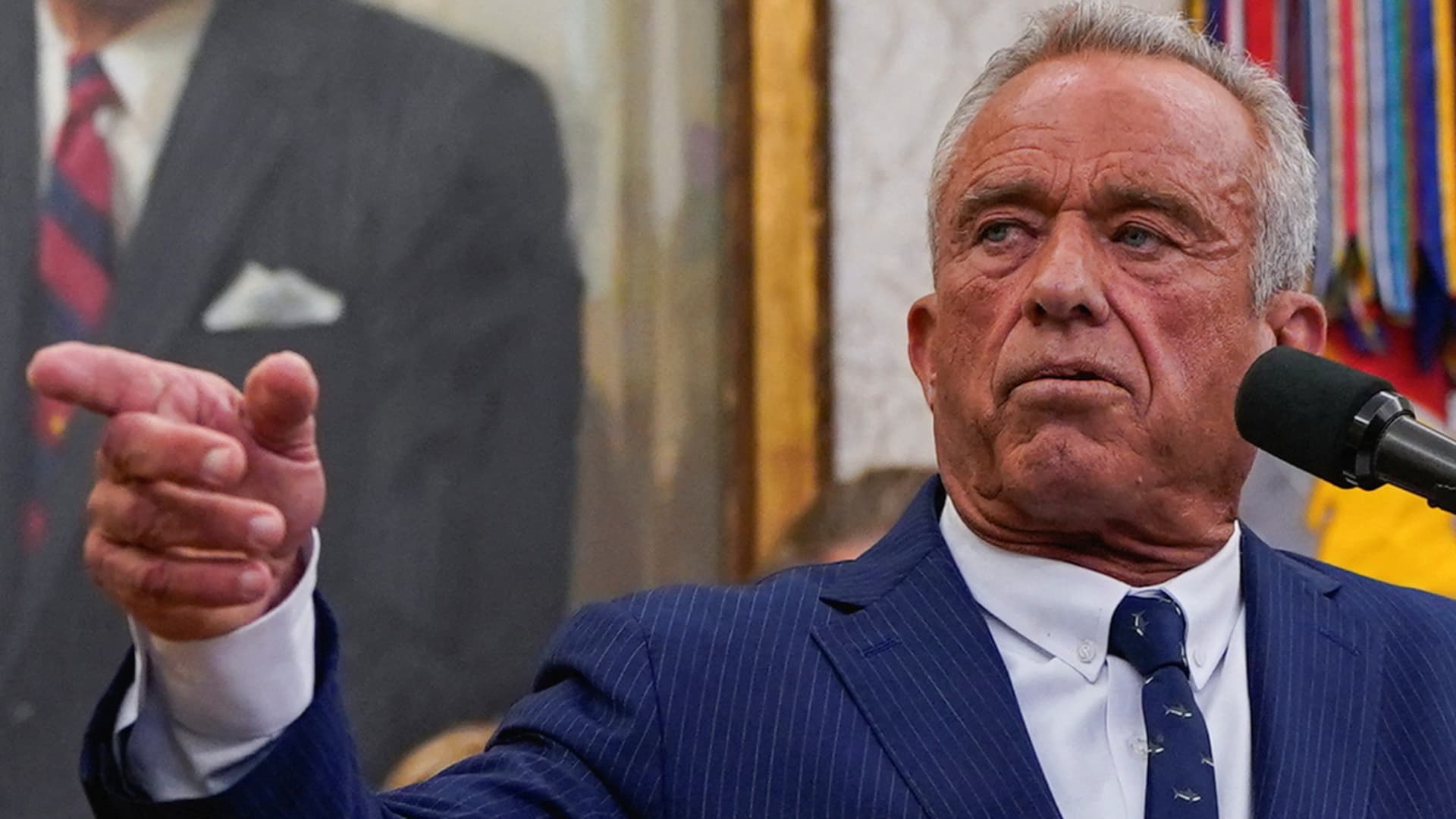The Ripple Effect: How RFK Jr.’s Influence May Impact Childhood Vaccination Rates in the U.S.
As childhood vaccination rates continue to decline across the United States, the potential influence of Robert F. Kennedy Jr. (RFK Jr.) raises concerns among public health officials. His vocal stance against vaccinations has garnered significant attention and support, particularly among certain segments of the population. This article explores the implications of his views on vaccinations and how they could alter parental decisions and overall public health outcomes.
The Current Landscape of Childhood Vaccination Rates
In recent years, the United States has witnessed a worrying trend: a decline in childhood vaccination rates. According to the Centers for Disease Control and Prevention (CDC), the percentage of children receiving routine vaccinations has dropped, with some states reporting immunization rates below the threshold required for herd immunity. This decline poses serious risks for public health, as lower vaccination rates can lead to outbreaks of preventable diseases such as measles, mumps, and whooping cough.
Several factors contribute to this decline, including misinformation, vaccine hesitancy, and a growing anti-vaccine movement. With public figures like RFK Jr. lending their voices to this movement, the ripple effect of their influence can be profound, affecting the decisions of parents across the nation.
RFK Jr.’s Stance on Vaccinations
Robert F. Kennedy Jr. has been a prominent advocate against mandatory vaccination policies. He argues that vaccines can cause harm and that parents should have the ultimate authority over their children’s health decisions. His views are often amplified through social media, public speaking engagements, and documentaries that question the safety and efficacy of vaccines.
RFK Jr.’s influence is particularly pronounced among parents who are already skeptical of conventional medicine. His arguments often resonate with those who feel overwhelmed by the complexities of healthcare and fear potential adverse effects from vaccines. By tapping into these fears, he has garnered a substantial following, which could have serious implications for vaccination rates.
The Ripple Effect on Parental Decisions
The ripple effect of RFK Jr.’s influence can manifest in various ways, particularly in how parents approach vaccination for their children. Here are some potential outcomes:
- Increased Vaccine Hesitancy: As more parents listen to RFK Jr.’s messages, they may become more hesitant to vaccinate their children, fearing potential side effects and questioning the necessity of certain vaccines.
- Peer Influence: Vaccination decisions are often influenced by social circles. If a significant number of parents in a community adopt RFK Jr.’s views, it may create an environment where vaccine hesitancy becomes the norm.
- Alternative Health Practices: Some parents may turn to alternative health practices or seek non-traditional medical advice, leading them to forgo vaccinations altogether.
Public Health Implications
The implications of RFK Jr.’s influence on vaccination rates extend beyond individual families. Public health officials are increasingly concerned about the potential for outbreaks of vaccine-preventable diseases in communities with low immunization rates. Some specific concerns include:
- Outbreaks of Preventable Diseases: A decline in vaccination rates can lead to outbreaks of diseases that were previously under control, such as measles, which can have severe consequences, especially for vulnerable populations.
- Increased Healthcare Costs: Outbreaks of vaccine-preventable diseases can strain healthcare systems, leading to increased costs for hospitals and public health interventions.
- Loss of Herd Immunity: Herd immunity protects those who cannot be vaccinated, such as infants and individuals with certain medical conditions. As vaccination rates drop, this protection diminishes, putting at risk those who rely on the immunity of the community.
Combatting Misinformation and Vaccine Hesitancy
In light of RFK Jr.’s influence, it’s crucial for public health officials to actively combat misinformation and address vaccine hesitancy. Here are some strategies that can be employed:
- Community Engagement: Public health campaigns that engage communities directly can help dispel myths about vaccines. Providing clear, evidence-based information can empower parents to make informed decisions.
- Support from Healthcare Providers: Healthcare providers play a vital role in influencing parental decisions. Encouraging open dialogues between parents and healthcare professionals can help address concerns and promote vaccination.
- Utilizing Social Media: Given the significant role social media plays in spreading information, public health campaigns must leverage these platforms to reach parents effectively and counteract misinformation.
The Role of Education in Vaccine Acceptance
Education plays a pivotal role in vaccine acceptance. By improving health literacy among parents, we can potentially reduce the influence of individuals like RFK Jr. on vaccination rates. Educational programs that focus on:
- Understanding Vaccines: Helping parents understand how vaccines work and their importance can alleviate fears and misconceptions.
- Recognizing Misinformation: Teaching parents to critically evaluate sources of information can empower them to recognize misinformation and make informed choices.
- Highlighting Success Stories: Sharing success stories of vaccination programs that have eradicated diseases can inspire confidence in the benefits of vaccines.
Conclusion: Navigating the Ripple Effect
As RFK Jr.’s influence persists, the ripple effect on childhood vaccination rates in the U.S. cannot be ignored. While his stance raises valid questions about parental rights and health autonomy, it also poses significant risks to public health. It is essential for public health officials, healthcare providers, and communities to collaboratively address vaccine hesitancy and misinformation.
Promoting education, engaging communities, and providing transparent information about the safety and efficacy of vaccines will play a crucial role in reversing the decline in vaccination rates. By fostering a culture of informed decision-making, we can work towards ensuring that all children receive the vaccinations they need to lead healthy lives, ultimately protecting the broader community from preventable diseases.
See more WebMD Network



